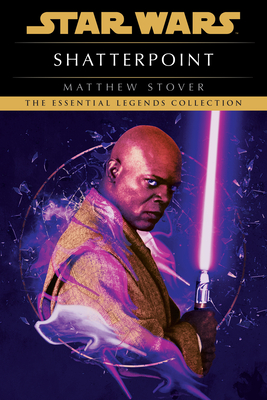What do you think?
Rate this book


464 pages, Paperback
First published June 3, 2003
I am a Jedi Master, and a Senior Member of the Jedi Council,” Mace said patiently. “I am a general of the Grand Army of the Republic. I am not to be sent for.”

“In my dreams, I always do it right. In my dreams, I'm on the arena balcony. Geonosis [...] . Within reach of my blade: Jango Fett. And [...] Dooku. [...] ango Fett bristles with weapons. An instinctive killer: the deadliest man in the galaxy. Jango can kill me in less than a second. I know it. But I do it right. My blade doesn't light the underside of Fett's square jaw. I don't waste time with words. [...] In my dreams, the purple flare of my blade sizzles the gray hairs of Dooku's beard, and in the critical semisecond it takes Jango Fett to aim and fire, I twitch that blade and take Dooku with me into death. And save the galaxy from civil war.”
“Standard combat equipment for the regular militia on Haruun Kal included the Merr-Sonn BC7 medium blaster carbine with the optional rocketgrenade attachment, six antipersonnel fragmentation grenades, and the renowned close-combat trench-style vibroknife, the Merr-Sonn Devastator, as well as Opankro Graylite ceramic-fiber personal combat armor. In addition, every sixth soldier carried a backpack flame projector, and each platoon of twenty was equipped with the experiemental MM(X) dualoperated grenade mortar, also from Merr-Sonn.”